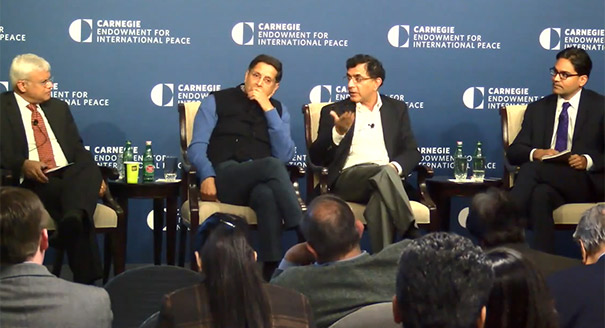Registration
You will receive an email confirming your registration.
While India’s rise is undeniable, its trajectory within the global order remains unclear. Prime Minister Narendra Modi’s call for India to become a leading power represents a change in how the country’s top political leadership conceives of its role in international politics. However, India will only acquire this status when its economic foundations, its state institutions, and its military capabilities are truly robust. It will take a concerted effort to reach this pinnacle.
Ashley J. Tellis’s paper, India as a Leading Power, comes at a critical point in Modi’s term, when important decisions about Indian national renewal are necessary if the country is to attain strategic success during the next few decades. Devesh Kapur and Arvind Subramanian served as discussants, examining the challenges that Modi’s government faces in steering India toward realizing his vision. Carnegie’s Milan Vaishnav moderated.
This month the South Asia Program is proud to announce the launch of Carnegie India, Carnegie’s sixth international center, in New Delhi. Watch video and view photos from the launch event.
on The launch of carnegie india
Ashley J. Tellis
Ashley J. Tellis is a senior associate at the Carnegie Endowment for International Peace specializing in international security, defense, and Asian strategic issues.
Devesh Kapur
Devesh Kapur was appointed director of the Center for the Advanced Study of India in 2006. He is a professor of political science at the University of Pennsylvania, and holds the Madan Lal Sobti chair for the study of contemporary India.
Arvind Subramanian
Arvind Subramanian is the chief economic advisor to the government of India. He is on leave from his position as the Dennis Weatherstone senior fellow at the Peterson Institute for International Economics.
Milan Vaishnav
Milan Vaishnav is a senior associate in the South Asia Program at the Carnegie Endowment for International Peace. His primary research focus is the political economy of India.
